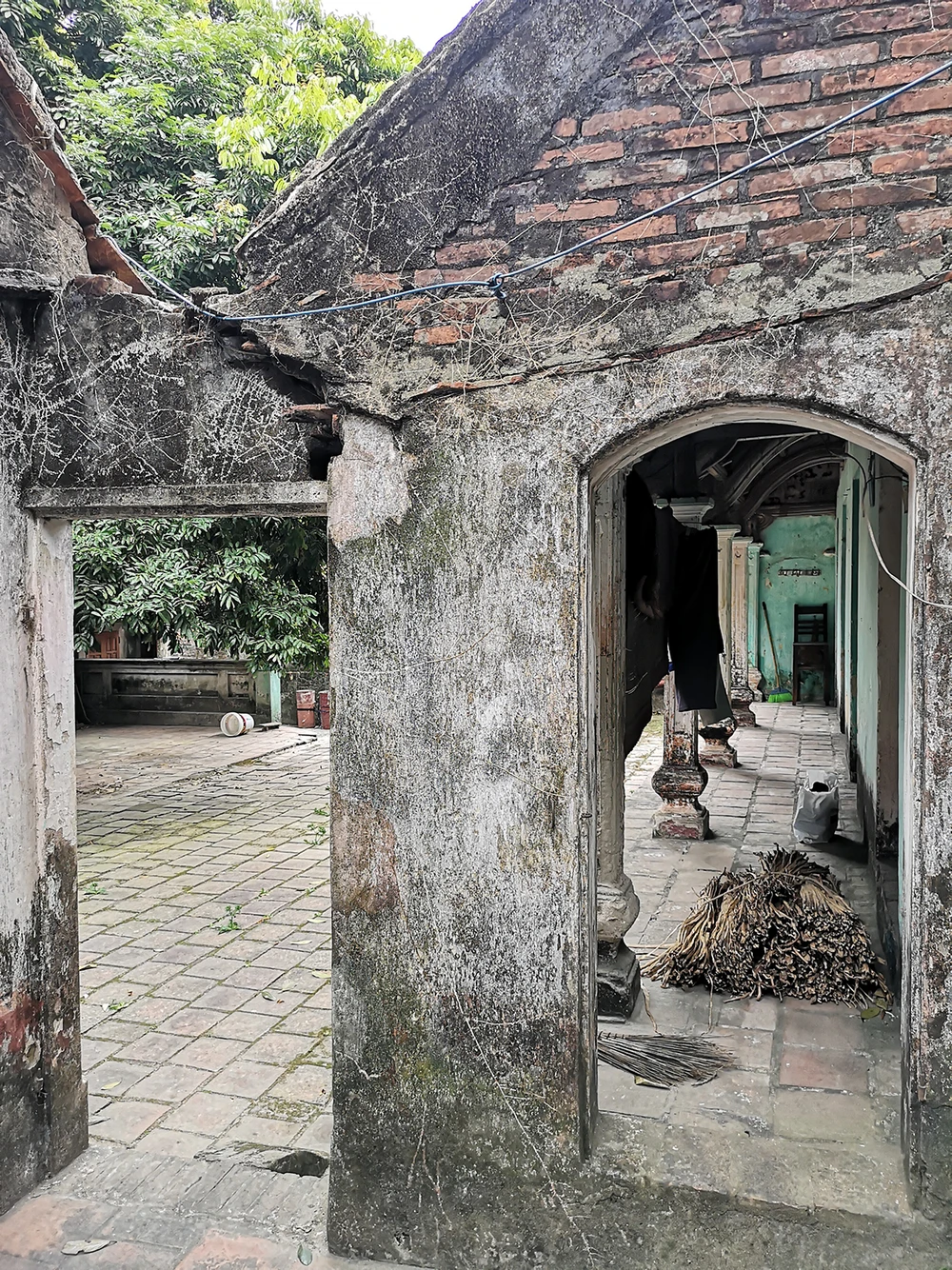In her youth, she was pursued by many young men in the village. Her maternal grandfather had to wait a long time before he dared to propose. The smoke and fire of war burned down her great-grandmother's house. She carried her mother, running through the forest barefoot, covered in mud. The children crouched around her, resting their chins on their hands, listening from the porch and small courtyard. Sometimes, they would innocently ask questions: "Why did you marry Grandpa back then? You were fleeing from the war, what did you do with your belongings?" She would chuckle, her eyes wrinkled and her hair falling to the sides. The story was often interrupted by bursts of laughter. And so, this place became a haven for stories of bygone days.
She liked to sit on the porch, a betel leaf freshly mixed with lime in her hand. On windy days, she would wrap a black velvet headscarf around her head. She would often squint, looking out into the alley. A few three-year-old children were playing hide-and-seek, arguing loudly. As the sun set, schoolchildren cycled past, calling out to each other to play marbles after putting away their schoolbags. The peaceful sounds of the village drifted onto the porch, making one's heart flow along with the gentle current. There was the faint sound of a dog barking, and the yellow incandescent light bulb hanging on the porch switched on. Mother spread out the mat and brought out the evening meal, the clattering of dishes and chopsticks mingling with the croaking of frogs in the fields. On the mat-covered table on the porch, she continued to tell stories of the past.

The porch was also where she often sat drying her hair. Her salt-and-pepper hair, faintly scented with early-season grapefruit, was loosened and gently dried with a long, linty towel. Her usual hairstyle, neatly tied back, had now grown slightly past her waist. Several times, when she combed her hair with a broken wooden comb, strands of hair clung to her, tangled like a loom. She would gently untangle them and save them along with the other loose and tangled hair, waiting for someone passing by the porch to call out to her to sell. A few ice cream cones or bags of yogurt would be exchanged for the tangled hair, which the children would eat while waiting to hear her stories on the porch, thus satisfying their cravings.
The chicks chirped in the yard, or clung to Grandma's legs on those midday suns. Grandma sat on the porch scattering handfuls of rice, then, bored, plucked some red cassia leaves, tying them into fish shapes to hang by the fence. The children peered over, excitedly plucking leaves and imitating her, making fish shapes. The little fish-like creatures bobbed in a school in the yard, practicing swimming on dry land in the scorching summer sun. Cicadas chirped loudly in the old flame tree at the edge of the village, seemingly extending the peaceful courtyard in the children's minds. With summer, they had more free time to listen to Grandma tell stories under the eaves.
And so, her stories told under the eaves became a place where the children in the neighborhood could entrust their memories. Even when they went far away, they would still yearn for their hometown and that small eaves of the house. Perhaps they no longer remembered all of her stories clearly. But whenever they saw her sitting on the plastic chair on the porch, the sounds tinged with memories would echo in their ears...
Perhaps everyone has their own shelters to anchor themselves in life.
Source: https://www.sggp.org.vn/ve-mai-hien-xua-post793690.html



![[Photo] President Luong Cuong visits and extends New Year greetings to the Party Committee, government and people of Phu Tho province.](/_next/image?url=https%3A%2F%2Fvphoto.vietnam.vn%2Fthumb%2F1200x675%2Fvietnam%2Fresource%2FIMAGE%2F2026%2F02%2F05%2F1770275472255_ndo_br_1-jpg.webp&w=3840&q=75)


![[Image] A firsthand look at the "world's highest bridge" in China.](/_next/image?url=https%3A%2F%2Fvphoto.vietnam.vn%2Fthumb%2F1200x675%2Fvietnam%2Fresource%2FIMAGE%2F2026%2F02%2F05%2F1770258359911_01-cau-hoa-giang-995-jpg.webp&w=3840&q=75)






























































































Comment (0)